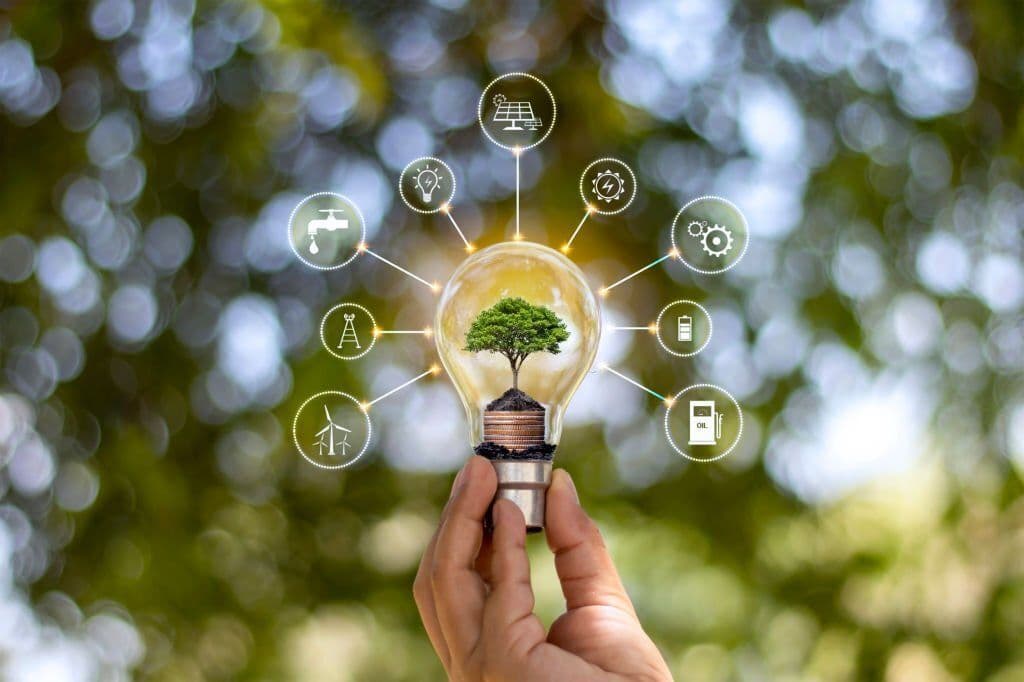
Beyond Renewable Energy- Future of the Energy Management
The world is rapidly moving towards a cleaner and more sustainable energy future. Renewable energy sources such as wind, solar, hydro, and geothermal power have gained significant popularity in recent years due to their potential to reduce carbon emissions and mitigate climate change. However, as renewable energy sources continue to gain traction, there is a growing need to explore beyond renewable energy and develop more advanced energy management systems that can support sustainable development in the long run.
Beyond Renewable Energy:
While renewable energy sources have been successful in reducing carbon emissions, they have their limitations. Renewable energy sources like wind and solar are intermittent, and their generation depends on the availability of natural resources such as sunlight and wind. This means that there is a need for backup energy sources such as batteries or traditional Power Generation plants to ensure a steady supply of electricity. Additionally, renewable energy sources require large land areas to generate significant amounts of electricity, which can be problematic in densely populated areas.
To overcome these limitations, it is important to explore renewable energy and develop more advanced energy management systems. These systems should aim to optimize the use of available energy sources, improve energy efficiency, and reduce energy waste. By doing so, we can ensure a more sustainable and secure energy future while reducing carbon emissions.

Smart Grids:
One of the most promising energy management systems is the development of smart grids. Smart grids are intelligent electricity networks that use sensors, communication, and information technology to optimize the generation, distribution, and consumption of electricity. Smart grids can integrate various renewable energy sources, energy storage systems, and demand-response programs to ensure a more reliable and efficient energy supply.
Smart grids use advanced analytics and machine learning algorithms to forecast energy demand and supply and adjust energy production accordingly. This means that they can manage the fluctuations of renewable energy sources like wind and solar, which can be affected by weather conditions. Smart grids can also detect faults and outages quickly, reducing downtime and improving grid reliability.
Energy Storage:
Energy storage is another crucial component of future energy management. Energy storage systems allow us to store energy generated from renewable sources during times of low demand and use it during peak demand periods. This can help to balance the grid and reduce the need for traditional power plants. Energy storage can also improve the reliability and resiliency of the grid by providing backup power during outages or emergencies. Energy storage systems can range from large-scale batteries to smaller residential units, and their applications can range from grid-scale operations to individual households.
Hydrogen:
Hydrogen is another promising technology that can play a significant role in future energy management. Hydrogen can be produced from renewable sources such as wind and solar through electrolysis, which involves splitting water molecules into hydrogen and oxygen using electricity. Hydrogen can then be stored and used as fuel for transportation, heating, and electricity generation.
Hydrogen has several advantages over traditional fossil fuels. It is a clean-burning fuel that produces only water vapor when combusted, and its production and use do not emit greenhouse gases. Hydrogen can also be produced from a wide range of renewable sources, making it a versatile and sustainable energy source.
However, hydrogen production and storage are currently expensive and require significant infrastructure development. Additionally, hydrogen has lower energy density than fossil fuels, which means that it requires larger storage tanks or pipelines to transport it. These challenges need to be overcome to make hydrogen a viable energy source for the future.
Nuclear Energy:
One solution is to incorporate more nuclear energy into the mix. Nuclear energy is a proven source of reliable, low-carbon energy that can help to meet the increasing demand for energy. While there are concerns about the safety and storage of nuclear waste, these concerns can be addressed through the use of advanced technologies and safety protocols. Nuclear energy can also provide a steady source of energy that is not dependent on weather conditions or other external factors.
In a Nutshell:
In recent years, there has been a growing need to move beyond just renewable energy sources to focus on a more holistic approach to energy management. The future of energy management is about creating a sustainable and reliable energy system that is efficient, cost-effective, and environmentally friendly. This involves integrating various technologies such as renewable energy, energy storage, demand-side management, and smart grid systems. It also requires a shift towards a more decentralized energy system where individuals and businesses can generate and store their own energy. Overall, the future of energy management is about creating a more resilient and sustainable energy system that meets the needs of our growing population while minimizing the impact on the environment.
Appreciate the creator